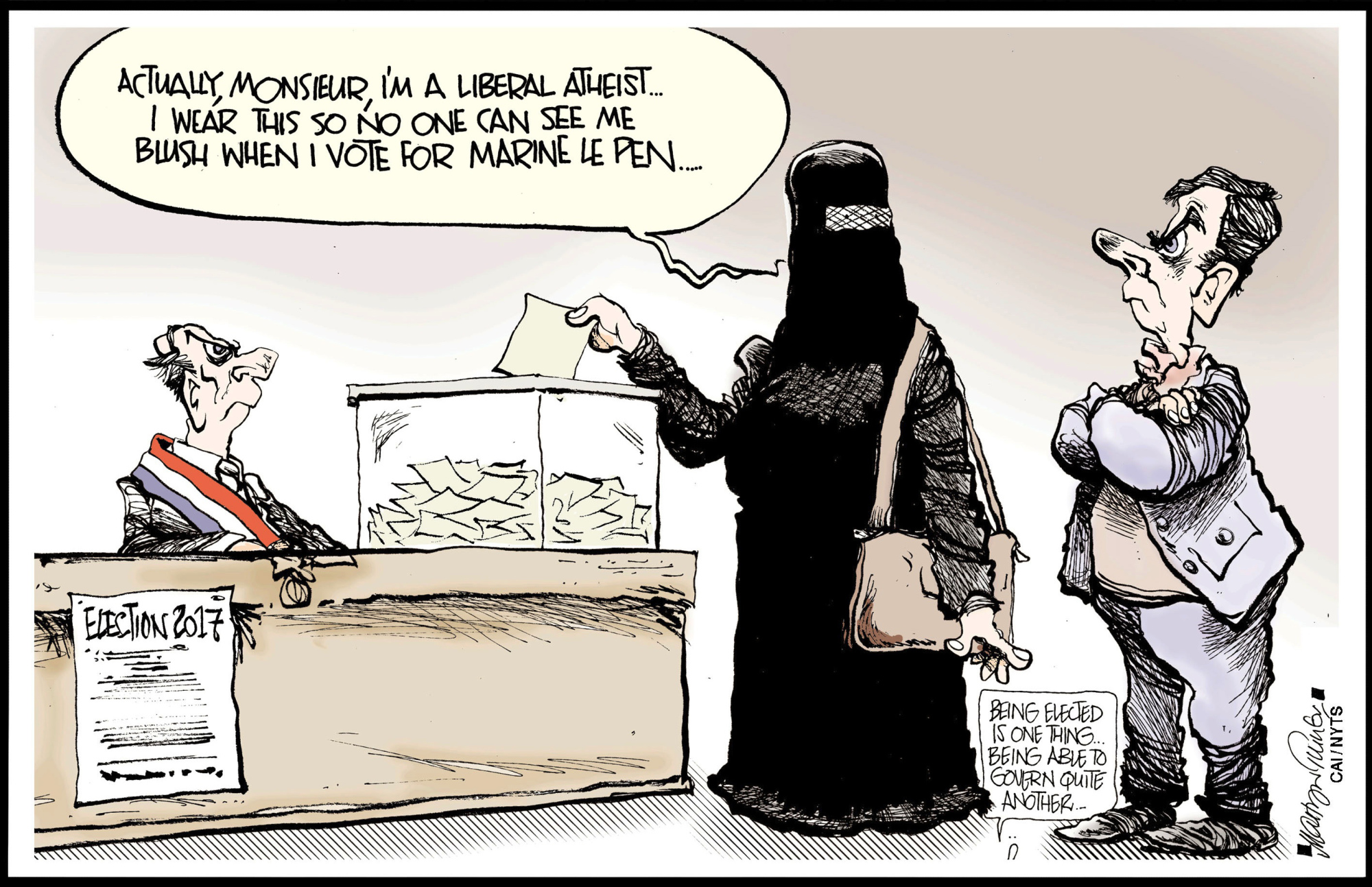In his victory speech on Sunday night Emmanuel Macron, the likely next president of France, said: "I want to become ... the president of the patriots in the face of the threat from the nationalists." The distinction would be lost on most Trump supporters in America and on Britain's "Little Englanders" who voted for Brexit, but it's absolutely clear to the French, and indeed to most Europeans.
In the United States, the preferred word is "patriot," but it usually just means "nationalist," with flags flaunted and slogans chanted. "America First" says President Donald Trump, and the crowd replies "USA all the way!" You can't imagine a British election rally doing that — the United Kingdom is too close to mainland Europe, where that sort of thing ended very badly — but the English nationalism behind Brexit was painfully obvious. For some in both countries it's actually "white nationalism," but even the many non-racists who voted for Trump or Brexit draw the line at the border or the water's edge. There's "us," and on the far side there's "them."
Whereas the French men and women who voted for Macron understand the difference between patriotism and nationalism very well. They will have to vote for Macron again in the run-off election on May 7, when his opponent will be the neo-fascist candidate Marine Le Pen, but in that round they will be joined by almost all the people who voted for other presidential candidates in the first round. She is a nationalist; they are patriots.



















With your current subscription plan you can comment on stories. However, before writing your first comment, please create a display name in the Profile section of your subscriber account page.